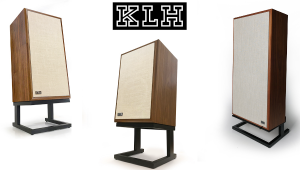He's got both incredible chops *and* musicality. There's an old jazz saying to which he is an exception - those who can't play, play fast but Mr. Howe can play slowly with soul or make runs on the guitar that are so fast the notes practically blend (or could, don't know if his fingers are still that fast). In my opinion, the definitive "prog-rock" guitarist. I saw him twice - on the first Asia tour (I remember they should some Looney Tunes cartoons as the "warm upp" act) and the Anderson, Bruford, Wakeman, and Howe tour. both good shows.
Steve Howe, Perpetual Sound Chaser

Forward-thinking guitar legend Steve Howe, the maestro of many iconic, nimble guitar riffs that have literally defined a generation or two of aurally challenging songs by the likes of Yes and Asia, is describing his raison d'être. "I'm a sound recorder, in a way," he continues. "I'm like Chet Atkins and Les Paul, who were both sound scientists. They were recording engineers and producers as much as I am, or as much as I hope to be."
Not one to disagree, I offer that Howe is, in fact, more of a "Sound Chaser," in reference to the raucous, multi-layered first song on Side 2 of Yes' far-reaching November 1974 album, Relayer.
"We were all Sound Chasers," Howe agrees. "We were chasing the sound, and finding that moment."
Finding that definitive "come out of the sky and stand there" moment has long been one of Howe's specialties, and the proof is in the deep grooves of his new solo album, Love Is, which is set for release on CD, LP, and digitally by BMG on July 31. The record could also be subtitled The Many Moods of Steve Howe, since the stargazing reach of "On the Balcony" (featuring son Dylan Howe on drums), the downhome twang of "Pause for Thought," and the Yes-reminiscent and perfectly named "Sound Picture" all illustrate the scope of his multi-genre acumen.

called Howe, 73, across the Pond to discuss the sonic intent of Love Is, how (yes) country music influenced his playing in Yes from the very beginning, and the ever-so-slight technical variance he found that needed adjusting after he listened to Steven Wilson's initial surround sound mix for Yes' December 1973 magnum opus, Tales From Topographic Oceans. From the moment I reached out to hold, I felt a sound. . .
Mike Mettler: What I like about the overall feel of Love Is is that it's very uplifting. The melodies make you feel good, for example. Was that part of your intention—to have the listener feel uplifted after hearing the whole album?
Steve Howe: Yeah, well, not overly self-consciously. I mean, I think it's fortunate that many people have said what you said: that there is a sort of uplift in it, and that it has a positive output level going with it, which I think is really good.
But I dare say, I would think that much of my music should have that element. Maybe I've just honed it down or shaped it 'round as it went along, with the space and time I had to do it in, you know? That's something I like to take a bit of pride in—that I didn't short-change it at the last minute. I wanted to let it go through a thorough process of development and change.
Mettler: That's an interesting point. And we should note this is Year 50 of you becoming a member of Yes [Howe joined the band in June 1970, replacing Peter Banks], and that's always been a hallmark of your sound with that band too. Everything we hear you do brings us, the listener, a level of joy. Compositionally speaking, can you tell if something sounds "positive" to you as opposed to "negative," or that it's something that makes you say, "Oh, I don't want to go down that road. That doesn't feel like Steve Howe to me"?
Howe: Well, I mean, look—I write the music that I write. I do discard some things, obviously, that might go on the back burner or come out as some sort of release idea in the future. Basically, I select from the music that I've got, from the best I've got in the moment.
And certainly, I'm not into writing "dirty" songs. Looking back to when Asia put out one of the reunion albums [April 2010's Omega], one of my songs on it was called "Through My Veins"—but that was also a love song about somebody becoming so much a part of you that it's like they're running through your veins. So, no, I don't think I've written any depressing songs. (both chuckle)

It's like a quote I love from [country guitar icon] Chet Atkins. One time when he came offstage after a show with somebody, a friend of his went up to him and said, "How was that?" And he said, "We fooled them again!" We fooled them again—I like the sort of paradoxical world we live in where we can see things differently from how we are expected to see them! (chuckles)
Statements like that inspire me in a way because, not only is it slightly tongue in cheek, it also has a sort of "truism" about it. Chet Atkins is both a performer and an entertainer, and the role of an entertainer is to sort of pull the wool over the eyes. The distance from the audience allows you that. So, if you can learn to concentrate in front of an audience, and hone that look down to the best it can be for those people, then I think that's a great show.
Mettler: It's interesting you mention Chet Atkins, because I've always felt there's been a bit of a country angle to some of your playing, "The Clap" [Howe's solo acoustic guitar showcase on February 1971's The Yes Album] being one example. The Love Is track "See Me Through" also has a little bit of that feel early on into it too. Is country something you've felt you've honed, to use that word again, to add to the breadth of what you play?
Howe: It's something wonderful that I heard even before I started playing the guitar. Obviously, back then, you didn't know about all the different styles of music that were out there, though I was exposed to quite a lot. My parents, fortunately, had some old 78 [rpm] records of a singer called Tennessee Ernie Ford—records like "Blackberry Boogie" [a No. 6 Country chart single also found on 1952's Ol' Rockin' 'Em], and various other songs. He had two guitarists on there that altered my life before I heard Chet. They were [lead guitar innovator] Jimmy Bryant and [pedal-steel pioneer] Speedy West, and they were a very successful instrumental duo who Tennessee Ernie Ford had the common sense—or wisdom, if you like—to have play with him. They virtually invented the guitar break. In other words, you get a song, and suddenly, this staggering thing comes along—a guitar break. Sometimes it was mixing the pedal steel guitar with the steel guitar in unisons, and they did tradeoffs too. I heard all that before I even picked up a guitar.
What I've learned on the guitar after all these years is that country music has always had a big part in my playing. Early on, I heard Chet Atkins, who fundamentally was a simple guitarist, but he's thought of in the most respectful way. He educated me about the versatility of the guitar, from classical to—well, he had it all! He had all the tricks that you could do.
I guess that's why I didn't stop at being a blues guitarist. I basically wanted to be all things to all guitar styles, to where I wanted to put my foot in all possible guitar styles. And that's also why, by the time we come to Fragile [the gamechanging Yes album released in November 1971], I use the steel guitar, because I found I didn't slide around on my guitar because I was a bit of a traditionalist then, and I didn't bend a whole lot. When I got a steel, I could just go mad. I could slide about all over the place.
That's why the different parts of the guitar family are so important to me, because I can do different things with each of them. Acoustic, electric, slide, mandolin, and things like the koto [a Japanese guitar with 13 strings]—you know, I actually picked up a koto about 3 weeks ago! I love stringed instruments, and that's what I do. I mix them all up. But certainly, country—yeah, that's right inside me.
Mettler: Another thing I also like is your personal sense of melody. The instrumentals on this album all start out with their own voice. What I mean is, I feel like I can almost sing a lyric you're leading into even though the song is instrumental, and we don't actually get to hear any lyrics.
Howe: Well, being a songwriter means I can't avoid the strengths I have. I've always wanted to be a melodic player, and I've always been a massive noodler. And as much as I love vocalization, I think a song should have some sort of melody ingredient, rather than be as many notes as you can cram into 12 bars. Basically, being melodic means that all of the instrumentals are actually instrumentals.
Through the years, I've released Homebrew, my series of home demo tape releases where you quite often hear things you thought were instrumental but were actually songs, as I do use those arrangements sometimes for the instrumentals. It's pretty hard to avoid that, and I mix that up all of the time. I do approach, as you said, giving a song a sound about it, but also the structure could be helped greatly by acknowledging that your journey with the tune isn't just like hearing that tune over and over again. Canon [in D Major] by [Johann] Pachelbel is a great repetitious tune, just like Bolero is, by [Maurice] Ravel.
But then again, you don't just want to stay with something—usually, you develop a journey, and you bring in different ingredients. Constructing songs is much like constructing instrumentals: "Yeah, I need ingredients. I need a riff, I need some themes, I need a verse here." Like, "Sound Picture" is a good example, because that one has a bit of The Shadows in it, really—[guitarist/vocalist] Hank Marvin. I didn't realize that until I had been talking about the Love Is album. That one starts with a pretty complicated phrasing-style introduction, and once it gets into the tune, it's really quite twangy, with the Stratocaster and a bit of whammy, and I harmonize it. But that's not a tune I ever had words to, so you're right—that's a good observation. Some of my instrumentals are quite similar in structure to songs.
Mettler: I get that same feeling when I'm listening to "Pennants," one of my favorite tracks from The Steve Howe Album [released in November 1979].
Howe: Yeah, that's on my second solo album—and it is a song I've re-recorded quite recently, in fact. It was almost on Love Is. It's the original song but quite different in style, as it's not like a head-on rock tune. It's one of those tracks I've got on the back burner that's going to be quite fun to release, because it is actually a vocal version of that song. But it's not called "Pennants," because there are two spellings of pennants, the other one with a "ce." So I've kind of disguised it now by spelling it as "Penance."
It's cool that you mentioned "Pennants" when you did, because it's something that may not have come up in our conversation at all—but I actually just finished mixing it! (chuckles) It's now a finished track in really high quality, as I'm singing a song that's based on that melody. So, wait for further information on its release, because it's turned out quite nice.
Mettler: I'll await your further instruction on that one, for sure. I would also love to hear your solo material mixed in surround sound, a format we've talked about before. Has that even been a thought for you—to revisit your solo material in 5.1?
Howe: It's been on my mind a great deal, and I want to start with [October 1975's] Beginnings and Steve Howe [i.e., The Steve Howe Album] as the very first ones. It'll be a while, but that is something that's in the process. I've been accumulating tapes and I've been considering and getting advice as how to do that, and who to do it with. It would be marvelous if I got the chance to do more things in 5.1.
And, I have to say—I'm really a "Soundist." I'm a sound recorder, in a way. Not only am I a producer and an engineer, but I'm like Chet Atkins and Les Paul, who were both sound scientists. They were recording engineers and producers as much as I am, or as much as I hope to be! Or have been, or still am.
In the end, when you pluck an instrument, or blow down it, or press the key, you're basically making a sound. It's sound that turns into an end product—music. And that applies whether you're listening to an organ or listening to some crazy rock band falling apart. (MM laughs) It's all sound, and that's what we're responding to.
I'm terribly interested in that side of it, you know—microphones and digital recording. That's all been part of my life. My first records were made with [noted experimental British producer] Joe Meek, who was one of the most profound producers in England at the time—even though he was quirky and crazy. (chuckles) But basically, he had a style and a sound, and his style came through.
- Log in or register to post comments
































































